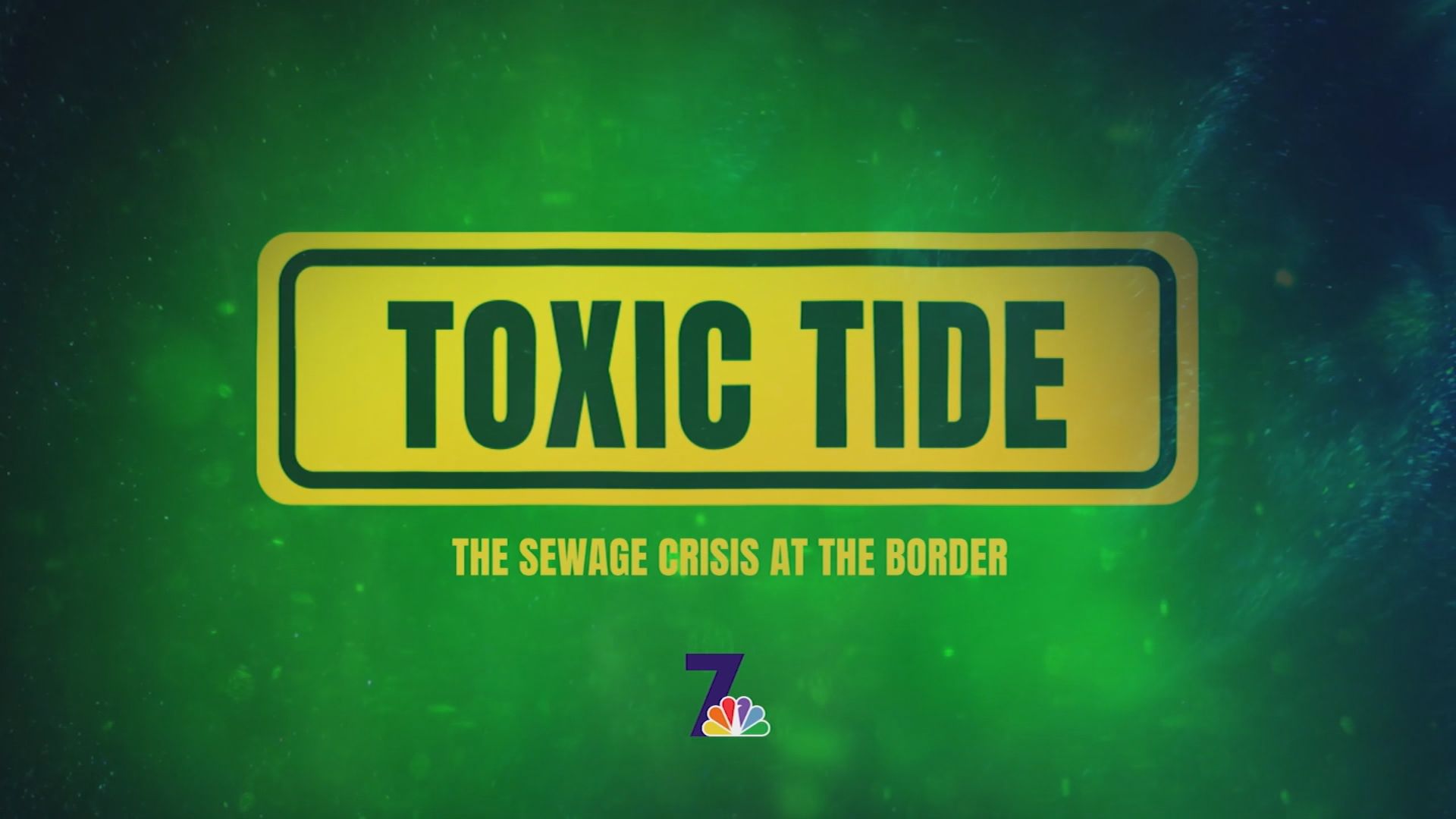The health and environmental impacts of continuing sewage spill from the Tijuana River into the ocean extend far beyond the waves, a report released Tuesday by San Diego State University's School of Public Health researchers found.
The report, commissioned by the Prebys Foundation at the request of Rep. Scott Peters, D-San Diego, was unveiled Tuesday in Imperial Beach, where the effects of the ongoing crisis are felt most.
Toxic Tide
According to the SDSU researchers, toxic chemicals and microbes in raw untreated sewage, industrial waste and urban runoff -- previously thought to remain isolated to the water -- can also be airborne and linger in soils, which may have much larger and further-reaching environmental health impacts.
Get top local stories in San Diego delivered to you every morning. >Sign up for NBC San Diego's News Headlines newsletter.
"This environmental catastrophe has hurt the region for many years, resulting in decades of adverse health consequences," Peters said. "We must approach it as a health and national security concern, which is why I asked the Prebys Foundation to help me build the case that this crisis goes far beyond beach closures; the people of South Bay now endure constant toxic air pollution that damages their health and well-being."
Researchers reviewed more than 60 related studies and reports, examining environmental and public health concerns in the Tijuana River Valley and Estuary.
The International Boundary and Water Commission has reported that more than 100 billion gallons of untreated sewage, industrial waste and urban runoff have spilled into the Tijuana Estuary and the Pacific Ocean via the Tijuana River and its tributaries over the last five years.
This ongoing contamination has resulted in more than 700 consecutive days of beach closures in Imperial Beach. In addition, lifeguards, U.S. Navy personnel, first responders and border patrol agents face dangerous occupational health exposures — the extent of which are still not fully understood.
"There needs to be more research done to fully understand the extent of the risks posed by exposure to these dangerous contaminants," said Paula Stigler Granados, associate professor in SDSU's School of Public Health and the paper's lead author. "Urgent interventions are needed to help reduce and address both the immediate and long-term potential health repercussions to those living near this hazardous environment."
The pollution is not only highly toxic, affecting water, air and soil, the authors write, but it also poses health risks to vulnerable groups such as children, seniors, outdoor workers and special populations including pregnant women. Antibiotic-resistant bacteria and other serious pathogens of public health concern, previously thought to be eradicated in California, have been found in the polluted waters.
"The persistent health impacts greatly reduce the quality of life for the community," Imperial Beach Mayor Paloma Aguirre said. "It's a challenging task, but now is the moment to ensure that our elderly, our children and water enthusiasts are not exposed to heightened health hazards while simply trying to enjoy a sunny day.
"Tackling this problem promptly and effectively is essential, as it is closely linked to the health and well-being of South Bay communities," she said. "The residents of Imperial Beach are worthy of far more than what they have been handed down."
The authors said the problem is an environmental justice issue as well, as border communities, often with limited economic resources, already have an increased risk of chronic diseases and already face increased pollution from other sources, such as from the vehicles idling at border crossings.
"This study confirms what should be obvious, which is that San Diego's health and community well-being are being seriously and actively harmed by years of inaction on this issue," Prebys Foundation CEO Grant Oliphant said. "The good news is that it is fixable, and that leaders like Rep. Peters and Mayor Aguirre and organizations like SDSU's School of Public Health are working to make that happen.
"Their efforts deserve broad support, because public health in our region depends on a robust shared commitment to protecting everyone in every one of our communities from these sorts of preventable harms," Oliphant added.



